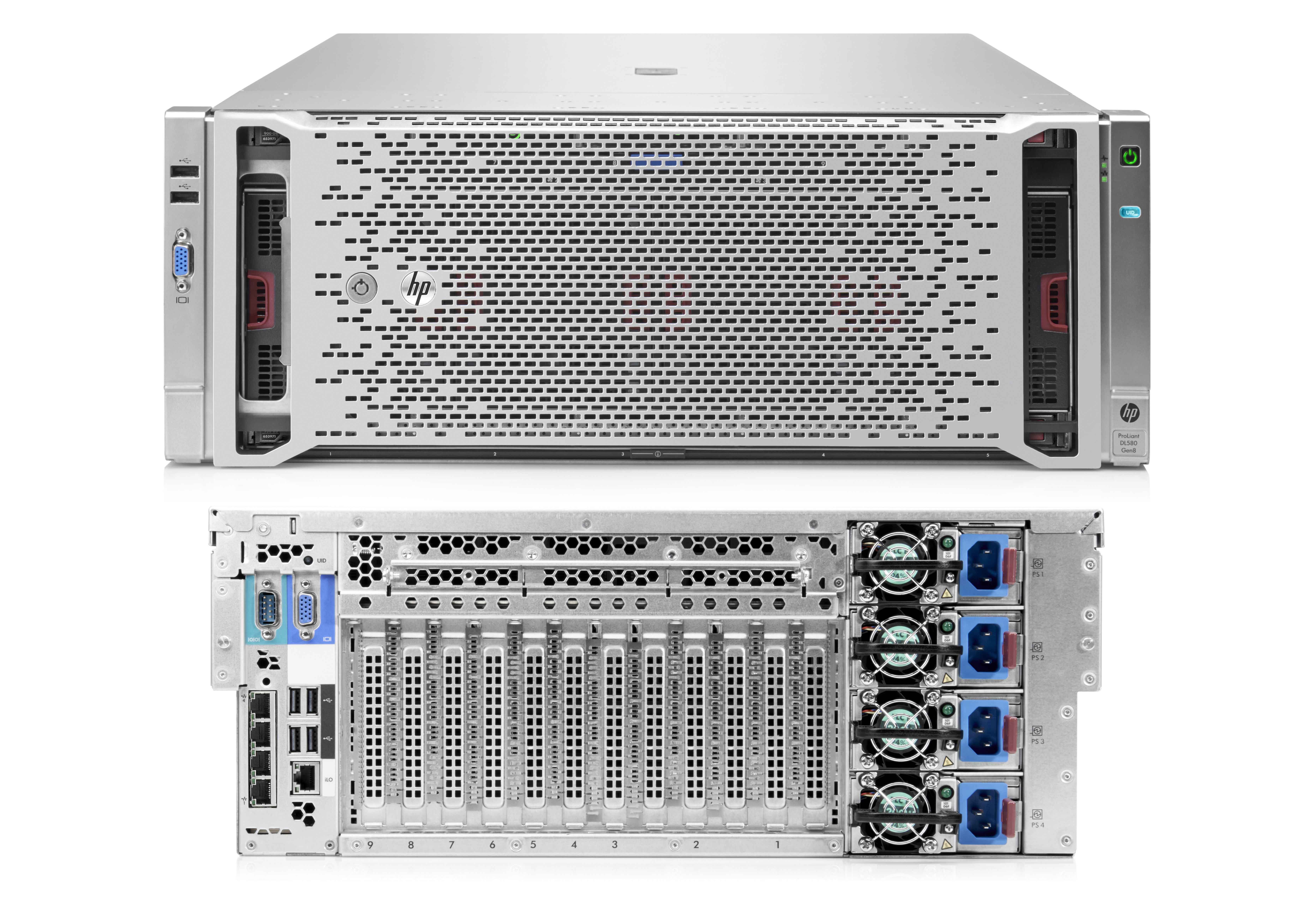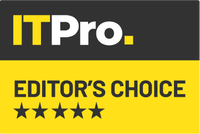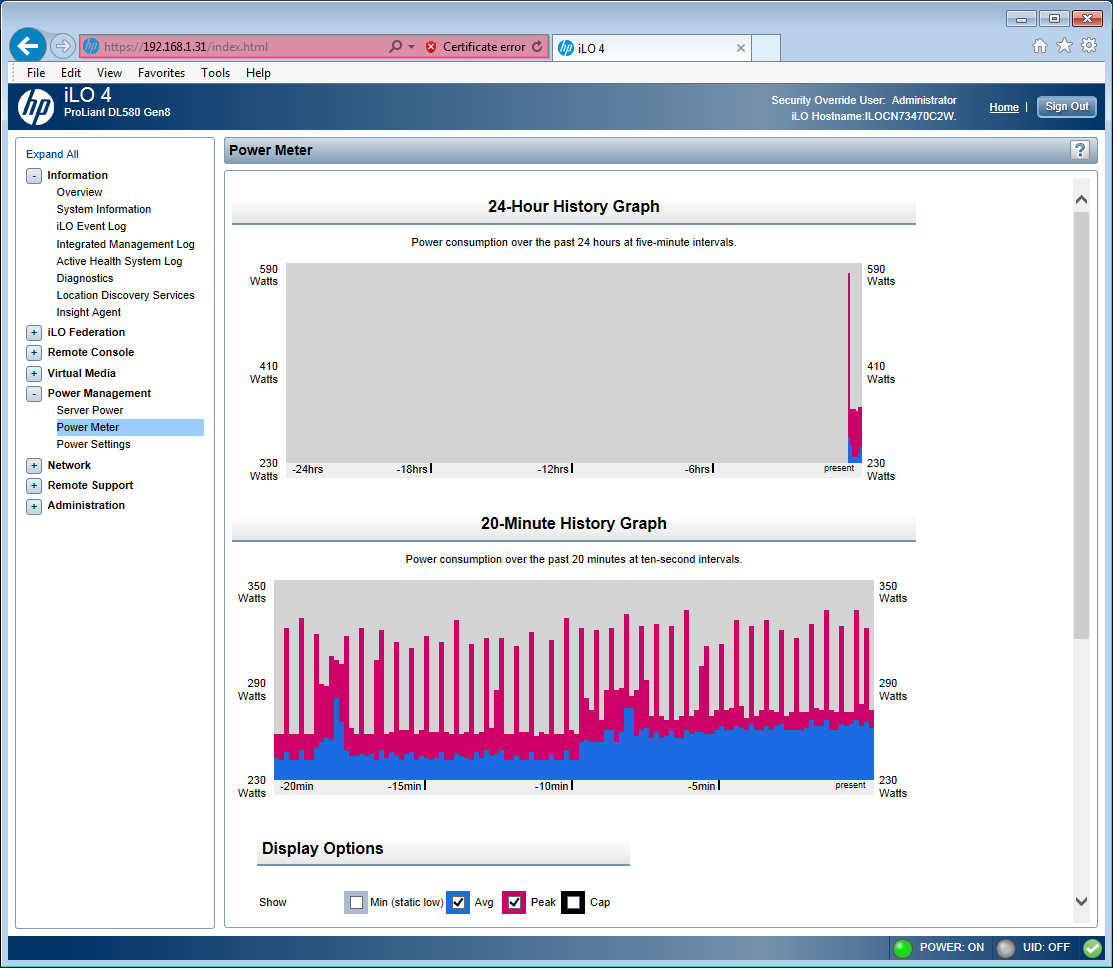HP ProLiant DL580 Gen8 review
HP goes RISC hunting with the first Xeon E7 v2 server to market.


The ProLiant DL580 Gen8 is a top choice for enterprises requiring RISC-like reliability at a low price. Along with excellent build quality and low power consumption, it delivers a number of features including a high processing density and huge memory capacity.
-
+
Top build; High core count and memory capacity; Low power usage; High reliability
-
-
6TB of memory isn't cheap

Model line-up and power
HP offers three pre-configured models with prices for the Basic 728547-001 SKU starting at around 8,610. This gets you two 6-core 1.9GHz E7-4809 v2 Xeons, four memory cartridges; 64GB of DDR3, the lower five bay drive backplane and dual PSUs.
We were supplied with a variant of the top-of-the-line Performance' 728544-001 SKU which costs 33,710. It comes with four 15-core 2.8GHz E7-4890 v2 Xeons, eight memory cartridges, 128GB of DDR3, all ten drive bays and four 1500W PSUs.
Our system had four 1200W hot-swap PSUs plus 256GB of DDR3 and we found it delivered on HP's power reduction promises. With Windows Server 2012 R2 Datacentre in idle, we recorded a modest draw of 275W. With SiSoft Sandra pummeling all 120 logical cores (that's right 120) consumption peaked at 940W.
This compares well with the first generation E7. The Fujitsu RX600 S6 we reviewed had quad 2GHz E7-4850 Xeons and four 850W PSUs and we clocked its 80 logical cores idling at 427W and peaking under load at 760W.

The iLO4 chip provides a wealth of remote management tools including power usage monitoring
Expansion and management
The server's ten SFF drive bays aren't a match for the 24 bays of Dell's PowerEdge R920. However, HP expects most customers to offload data storage to a SAN and just need the server to have local boot capabilities.
There's plenty of room to expand as you have nine PCI-Express slots supporting full-height, full-length cards. A separate daughterboard behind the PSU bay also has six I/O auxiliary power connectors and another for the upper drive bay backplane.
A dedicated slot at the back accepts HP's FlexibleLOM cards with options for quad Gigabit and dual 10GbE SFP+ ports. The FlexFabric version has dual 10GbE ports which can each be partitioned into four virtual ports with their own bandwidth allocation.
The SPI board also has HP's iLO4 chip which needs little in the way of introduction. We first looked at this in our exclusive review of HP's ProLiant DL360p Gen8 and found it offers the best range of remote management features on the market.
Conclusion
The DL580 Gen8 and its Xeon E7 v2 CPUs delivers higher core counts, more memory and increased reliability in a solid, compact rack chassis. It has good expansion, fast 12Gbps SAS storage support and quality remote management tools.
Along with the three factory models, HP also offers a range of Xeon 8800/4800 E7 v2 CPU options. This will allow enterprises to tailor the system for maximum performance, reduced power consumption or lower core counts to reduce software licensing costs.
Verdict
The ProLiant DL580 Gen8 is a top choice for enterprises requiring RISC-like reliability at a low price. Along with excellent build quality and low power consumption, it delivers a number of features including a high processing density and huge memory capacity.
Chassis: 4U rack CPU: 4 x 2.8GHz E7-4890 v2 15-core Xeons Memory: 256GB 1600MHz DDR3 (max 6TB) Storage: 2 x 300GB HP SAS SFF hot swap drives (max 10) RAID: HP Smart Array P830i 12Gbps SAS RAID with 2GB FWBC/capacitor Array support: RAID0, 1, 10, 5, 6, 50, 60 Expansion: 9 x PCI-e Gen3 Network: 4 x Gigabit FlexibleLOM Power: 4 x 1200W hot-plug PSUs Management: HP iLO4 with 10/100 Warranty: 3yrs on-site NBD
Get the ITPro daily newsletter
Sign up today and you will receive a free copy of our Future Focus 2025 report - the leading guidance on AI, cybersecurity and other IT challenges as per 700+ senior executives
Dave is an IT consultant and freelance journalist specialising in hands-on reviews of computer networking products covering all market sectors from small businesses to enterprises. Founder of Binary Testing Ltd – the UK’s premier independent network testing laboratory - Dave has over 45 years of experience in the IT industry.
Dave has produced many thousands of in-depth business networking product reviews from his lab which have been reproduced globally. Writing for ITPro and its sister title, PC Pro, he covers all areas of business IT infrastructure, including servers, storage, network security, data protection, cloud, infrastructure and services.
-
 Westcon-Comstor and Vectra AI launch brace of new channel initiatives
Westcon-Comstor and Vectra AI launch brace of new channel initiativesNews Westcon-Comstor and Vectra AI have announced the launch of two new channel growth initiatives focused on the managed security service provider (MSSP) space and AWS Marketplace.
By Daniel Todd Published
-
 Third time lucky? Microsoft finally begins roll-out of controversial Recall feature
Third time lucky? Microsoft finally begins roll-out of controversial Recall featureNews The Windows Recall feature has been plagued by setbacks and backlash from security professionals
By Emma Woollacott Published
-
 The UK government wants quantum technology out of the lab and in the hands of enterprises
The UK government wants quantum technology out of the lab and in the hands of enterprisesNews The UK government has unveiled plans to invest £121 million in quantum computing projects in an effort to drive real-world applications and adoption rates.
By Emma Woollacott Published